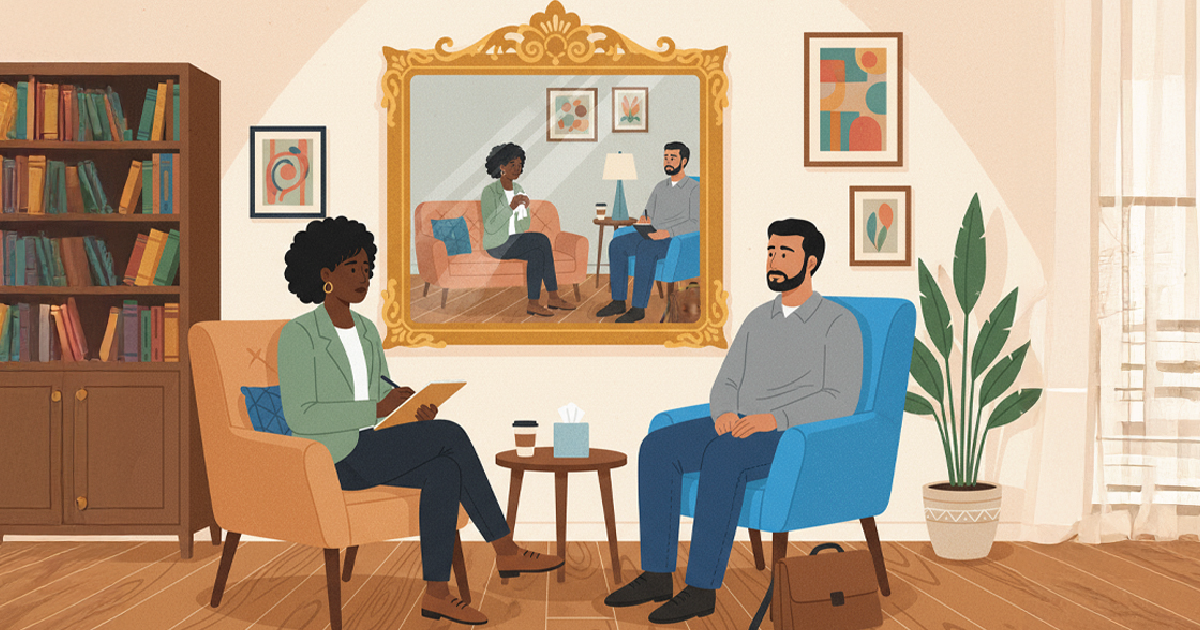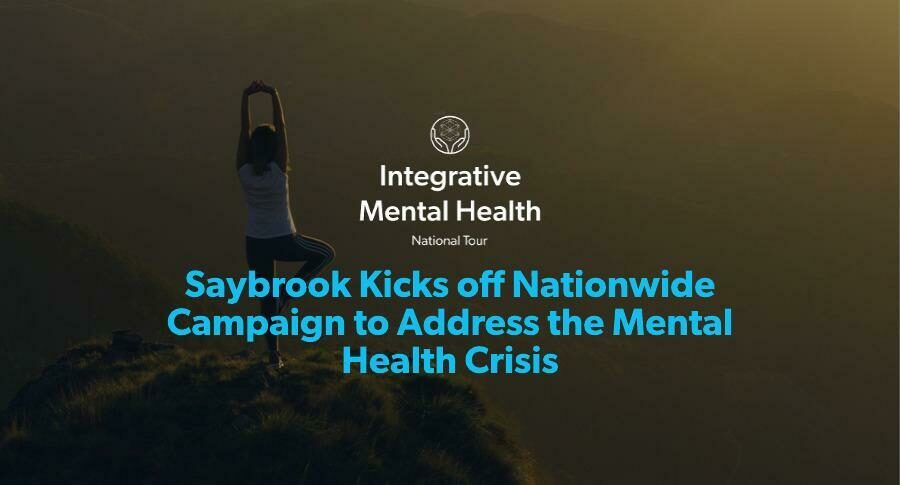A symposium devoted to addressing the need for self-care among mental health professionals and the value of integrative health care seeks to provide solutions to a crisis.
As the U.S. faces a mental health crisis and a lack of trained professionals to deal with it, Saybrook University will undertake an initiative over the next two years called Integrative Mental Health for All. As part of the initiative, Saybrook President Nathan Long, Ed.D., faculty, alumni, and students will travel the country, to examine the state of mental health and integrative health. The goal is to identify opportunities and challenges and develop strategies for action to address the crisis.
This nationwide effort, called the President’s Symposium on Integrative Mental Health, kicked off online on May 19, 2023, with a discussion of the growing demand for mental health services in the U.S., the need to train more professionals to close the gap, and why an integrative mental health model is the best prescription for treating the mind and body.
The event opened with a welcome from Charlotte Hamilton, Ph.D., dean of the College of Social Sciences, and Donald Moss, Ph.D., dean of Integrative Medicine and Health Sciences, and a mindfulness meditation presented by Luann Fortune, Ph.D., and Dr. Moss. The seminar then featured three conversations addressing the most urgent issues currently facing educators and practitioners.
Self-care for caregivers
The first panel, Addressing Burnout and Secondary Trauma, was presented by Stephen Brown, Ed.D., associate professor of behavioral sciences at California Baptist University, and Trent Nguyen, Ph.D., chair of the Department of Integrative Social Work at Saybrook University. Dr. Nguyen began by noting the instructions airplane passengers receive before takeoff to—in the event of an emergency—secure their own oxygen masks before assisting their children. While seemingly counterintuitive, Dr. Nguyen explains that this message is necessary to ensure that the parent remains fully capable to provide care for the child. In a similar way, social workers tackling difficult cases cannot be effective unless they are prioritizing their own mental health.
To illustrate this point, Dr. Brown brought up secondary traumatic stress disorder, which can be caused by indirect exposure to trauma through firsthand accounts. The effects can mimic post-traumatic stress disorder. Accompanying concerns are compassion fatigue, in which health care responders become overwhelmed with the number of people in need they encounter over a prolonged period of time, and vicarious trauma, in which mental health professionals and other care providers assume the emotional burdens of clients who have experienced sexual assault, physical abuse, and child neglect.
“When I was in graduate school, we did not talk about taking care of ourselves,” Dr. Brown says. “The focus was always on the client. When I started feeling a lack of energy and motivation, I didn’t know what was wrong.” The challenges for younger social workers are made more acute by the fact that they are often assigned the toughest cases.
Fortunately, much has improved over the last few decades, Dr. Brown says, noting that every facility he works in now has a meditation room. To insulate themselves against the stresses of profession, he urges social workers to “pay attention to the physical mode where nutrition and exercise are key as well as the mental aspect and the spiritual side.”
Stay active and well
The second panel, Supporting Wellness in Social Justice in Activism Work, was presented by Joel Federman, Ph.D., chair of the Department of Transformative Social Change, and Theopia Jackson, Ph.D., chair of the Department of Clinical Psychology. Dr. Federman stressed the importance of supporting wellness and social justice to stay grounded and emotionally healthy to carry on the work of social activism in a challenging time. “It’s very difficult to be a human being let alone an activist for social justice when stress is literally in the air all around us,” Dr. Federman says.
The liberatory approach Dr. Federman espouses was popularized by Brazilian educator Paulo Freire and is grounded on three core principles: the learning process is nonideological; teachers learn and work alongside their students, not in front of them; and the core belief is that a better world is possible.
Dr. Jackson focused her presentation on individual and collective hearing through the power of ritual. Collective healing refers to seeing the well-being and health of community members as a shared responsibility with the objective of collective empowerment. In other words, she says, “We are not helping someone else as much as we are being helped.”
As an exercise in visualization, Dr. Jackson invited attendees to think about what collective healing, collective care, and collective wellness would look like in their work. “I would submit to you that collective care, collective healing includes self,” because, she says, “We are each other’s best medicine.”
A nationwide effort is needed
The third and final panel of the day served as the kickoff for the national tour of the President’s Council on Integrative Mental Health Panel, moderated by Dr. Moss and Dr. Long and featuring guest Kimberly N. Frazier, Ph.D., president of the American Counseling Association, and C.J. Davis, Psy.D., president and CEO of Burrell Behavioral Health.
Dr. Davis calls the mental health crisis the second curve of the pandemic. “Normally about 15% of people will experience a concerning psychiatric symptom,” he says. “If you look at the data today, it’s anywhere between 40 and 50, which essentially means one out of every two individuals in America are experiencing a distressing, self-reported psychiatric symptom, and that is really impacting the demand for services.”
Dr. Moss cited the surgeon general’s statistics that during the pandemic there was a 50% increase in emergency room visits for suicide attempts by teenage girls and a doubling of anxiety and depression for teens of both genders. This increase has not been met with an increase in care. “A recent APA [American Psychological Association] study showed that 60% of psychologists have no openings for new clients,” Dr. Moss says. “I talked to a Saybook graduate who opened a practice a week ago and already has a three-month waiting list.”
Dr. Frazier pointed out that the crisis is particularly acute in communities of color. “We don’t have enough people who are trained to meet Black and brown communities where there is a stigma associated with just seeking out mental health services,” she says. “People don’t know what to look for in terms of triggers—the behaviors that go on before something blows up into a big issue.”
What’s next for integrative care?
The members of the panel agreed that integrative approaches to health care were successful. But part of the problem, Dr. Frasier believes, is that integrative models are not taught enough in the health care education system. “What needs to happen is that we graduate people who are thinking from that perspective already,” she says.
Going forward, much of the conversation will center on the importance of self-care for mental health care providers, that models for integrative health should include providers of psychological and medical services co-located or partnered in virtual models, and, importantly, that these services be accessible to all.

To learn more about programs at Saybrook University, fill out the form below.
Find Out More
Recent Posts




























